10 Signs of a Healthy Baby That Every Parent Must Know

As parents to a newborn little one, your responsibilities grow tenfold. Babies need a lot of care, and as parents, you make sure you do everything possible to maintain your baby’s good health and overall well-being. But babies cannot talk to us and convey their situation and what they are feeling or going through, which puts parents in the difficult position of surmising what is happening with their tiny tot. But if you are observant, you may notice signs that your baby is healthy and doing well. In the following article, we shall talk about some signs that every parent must know to establish the well-being of their babies.
10 Signs That Indicate Your Baby Is Healthy
As a parent, you are always anxious about your baby’s health, but how do you know if the baby is healthy? Here we have some signs of a healthy newborn that you should look for in your baby:
1. If Your Baby Demands Frequent Breastfeeding
Babies are born with an innate sucking reflex, which means that as soon as you get anything close to your baby’s mouth, they may begin sucking it. If your baby has a good sucking urge and asks for frequent feeds, this means that your baby has a good appetite and an excellent digestive system. If your baby makes a gulping sound when they swallow milk, they are feeding well (1). A baby who feels satiated may sleep during the feeding session.
2. If Your Baby Feels Calmed and Soothed by Your Presence and Voice
Your baby spends nine months in your womb, and your voice has always been essential to their existence. After their birth, they may also listen and respond to your voice, which hints that your baby is on the right track of emotional development. If you can soothe your crying baby or pay attention whenever you talk to them, it is evident that your baby is hale and hearty (2).
3. If You Are Changing 5-12 Diapers in a Day
Yes, your baby’s pee and poop also define how healthy they are. Whether your baby is breastfed or on formula milk, on average, they should be wetting 5 to 12 diapers in a day. This indicates that your baby is not only feeding well but is also adequately hydrated. Your baby will also show a considerable weight gain in the first few weeks after birth. However, if your baby is wetting fewer diapers in a day (3) or not showing substantial weight gain, they are not feeding well. Also, darker-coloured urine indicates dehydration in babies.
4. If Your Baby Is Gaining Adequate Weight and Height
Every time you take your baby to the doctor, your doctor measures your baby’s weight and height. In the first six months, your baby grows fast, and on average, your baby may gain 5 to 7 oz of weight and ½ to 1 inch of height every week. If your baby is approximately twice his birth by five months and thrice his birth weight by the time they are one year old, they are healthy (4). You may ask your doctor about your baby’s ideal weight and height.
5. If Your Baby Looks at You and Smiles
Your baby can look at you and make eye contact by the time they are one month old; your baby may smile at you by the time they are two months old (4), and they may giggle out loud by the time they are four months old. Your baby may smile back at you by the end of five months. As soon as you register your baby making cooing and babbling sounds, this may mean that they are all set to speak their first words. These small milestones indicate that your baby is growing in a healthy way and is also aware of their surroundings.
6. If Your Baby Observes Various Things Around Them
At birth, your baby’s vision is not that great, and everything seems blurry to them. However, as your baby grows, they observe and focus on things around them. After birth, your baby’s vision is limited to 8 to 12 inches only. However, this increases gradually, and your baby starts looking and focusing on objects farther away (6). Therefore, if your baby has their gaze fixed on the ceiling, they may observe a moving fan. This is a sign that your baby is growing in a healthy manner.
7. If Your Baby Responds to New Sounds
Your baby could hear before birth, which means they were aware of various sounds and noises in your womb. Babies cannot recognise sounds, but as your baby grows, they may better understand various sounds around them. You may notice them reacting to the sound of music, television and even sound from the toys. Whenever your baby hears a new sound, you may see them react, which is a good sign of healthy development (7).
8. If Your Baby’s Stools Are Regular
Though it may sound a bit strange, your baby’s poop is also helpful in determining how well they may be doing in terms of their health. Babies have a different frequency in passing stool, where some may poop a few times a day others may poop once in a few days. There is no need to feel concerned until your baby’s stools are normal, which means they are soft and your baby is comfortable passing the stool (9).
9. If Your Baby Sleeps Well
Sleeping is very important for the overall development of babies, and if your baby sleeps well, they will grow well, too. As your baby grows, their improved nervous system will help them get into various schedules, and sleep is one of them. If your baby sleeps well, anywhere from 11 to 17 hours (8), he is happy and content; it is a sign of healthy development.
10. If Your Baby Can Support Their Weight
When your baby is one month or older, they may be able to lift their head briefly, and by the time they turn three months, they may be able to lift their head for a longer time by lying on their tummy. This is an excellent indication that your baby has control over their muscles and thus is trying to make various movements. By six months of age, your baby may roll on both sides and sit with support, and by the time they are one year old, they will be able to crawl, stand and walk with support (10). These all are indicators of a healthy baby.
FAQs
1. What signs indicate my baby is getting sufficient nutrition and growing properly?
Some of the signs that your baby is getting enough nutrition include – alert and responsive babies, frequent diaper changes, ability to pass stool easily that is generally soft, being well rested, frequent diaper changes, height and weight matching average growth for that age, and latching on and feeding properly.
2. How do I gauge my baby’s emotional health, and what are the signs of a happy baby?
While babies are still growing and developing and have not learned how to communicate their emotions, you can tell your baby is happy when their daily routine is uninterrupted. They feed, sleep, eat well, and smile at you. Your voice and presence soothe them, and they respond to general stimuli.
These are signs of a healthy newborn and that your baby is doing fine. However, if you experience any developmental delays, it is suggested that you seek help from your doctor to understand the reason and take necessary measures to cure the same.
References/Resources:
1. Breastfeeding: is my baby getting enough milk?; NHS; https://www.nhs.uk/conditions/baby/breastfeeding-and-bottle-feeding/breastfeeding-problems/enough-milk/
2. How a mother’s voice shapes her baby’s brain; Psych Place; https://www.psychplace.com.au/blog/34-how-a-mother-s-voice-shapes-her-baby-s-brain
3. Dehydration; Nemours Kid’s Health; https://kidshealth.org/en/parents/dehydration.html
4. Slow Weight Gain in Infants and Children; Boston Children’s Hospital; https://www.childrenshospital.org/conditions/slow-weight-gain-infants-and-children
5. When Do Babies First Smile?; Healthy Children; https://www.healthychildren.org/English/tips-tools/ask-the-pediatrician/Pages/When-do-babies-first-smile.aspx
6. Your Newborn’s Hearing, Vision, and Other Senses; Nemours Kid’s Health; https://kidshealth.org/en/parents/sensenewborn.html
7. Age-Appropriate Speech and Hearing Milestones; Children’s Hospital of Philadelphia; https://www.chop.edu/conditions-diseases/age-appropriate-speech-and-hearing-milestones
8. Sleep in Your Baby’s First Year; Cleveland Clinic; https://my.clevelandclinic.org/health/articles/14300-sleep-in-your-babys-first-year
9. Infant and Toddler Health; Mayo Clinic; https://www.mayoclinic.org/healthy-lifestyle/infant-and-toddler-health/expert-answers/baby-poop/faq-20057971
10. Your baby’s development from 2 to 12 months; NHS Inform; https://www.nhsinform.scot/ready-steady-baby/early-parenthood/your-baby-s-development-from-2-to-12-months/
Also Read:
Age Wise Baby Checkup
When Does a Newborn Baby Start Hearing After Birth
Baby Girl Height & Weight Growth Chart – 0 to 12 Months
Baby Boy Height & Weight Growth Chart – 0 to 12 Months
Was This Article Helpful?
Parenting is a huge responsibility, for you as a caregiver, but also for us as a parenting content platform. We understand that and take our responsibility of creating credible content seriously. FirstCry Parenting articles are written and published only after extensive research using factually sound references to deliver quality content that is accurate, validated by experts, and completely reliable. To understand how we go about creating content that is credible, read our editorial policy here.







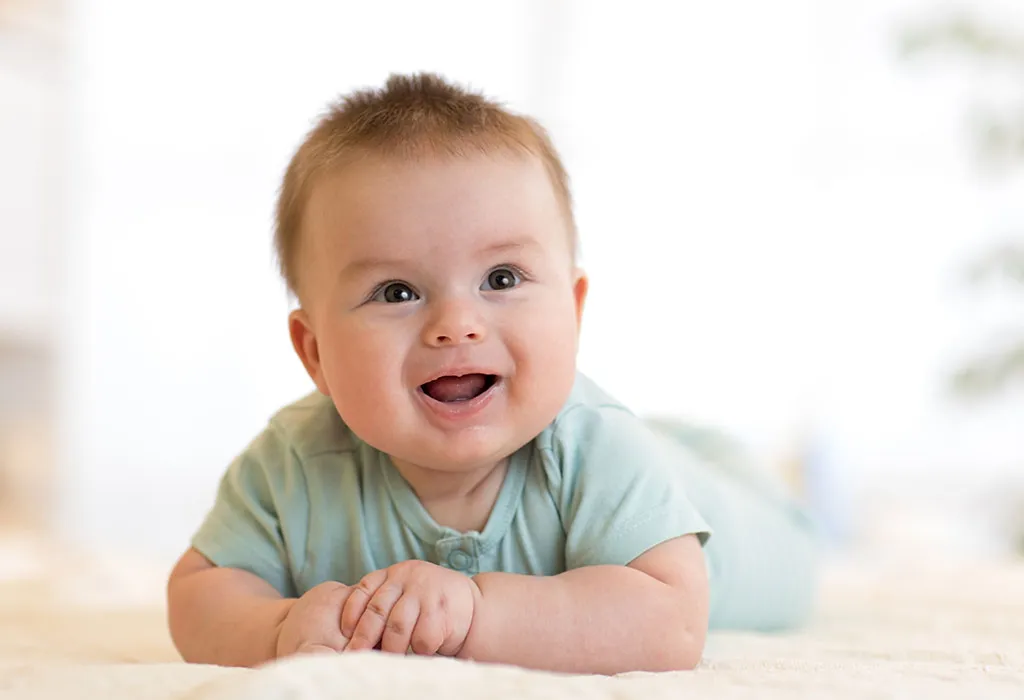








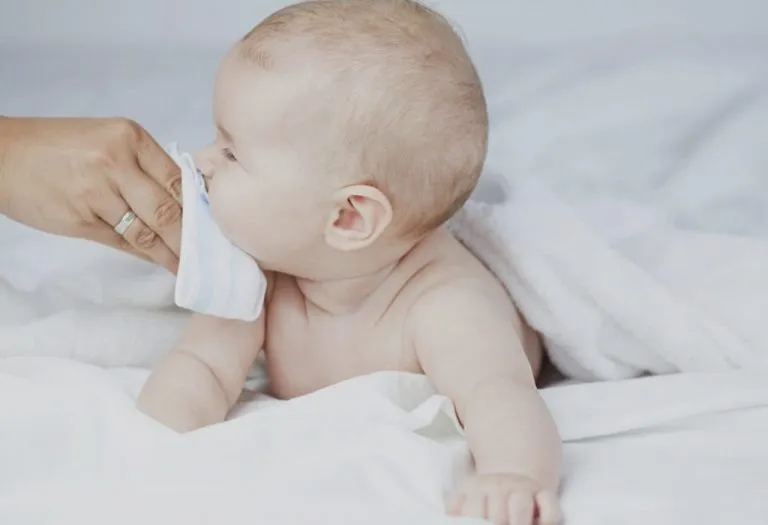
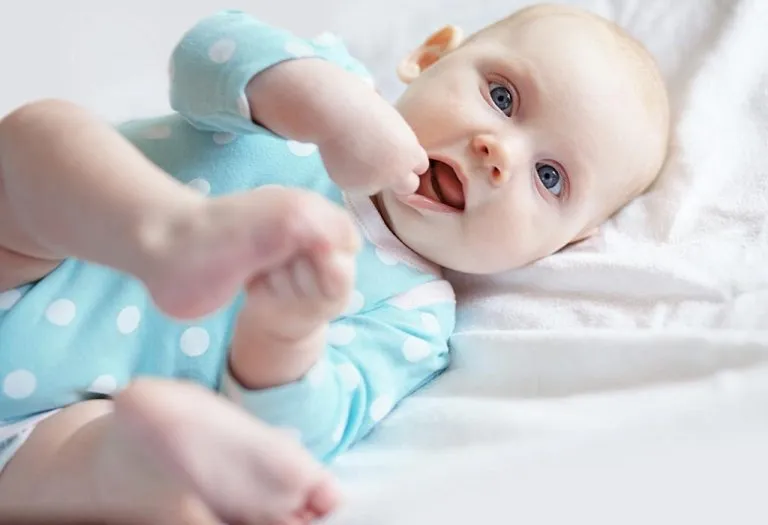
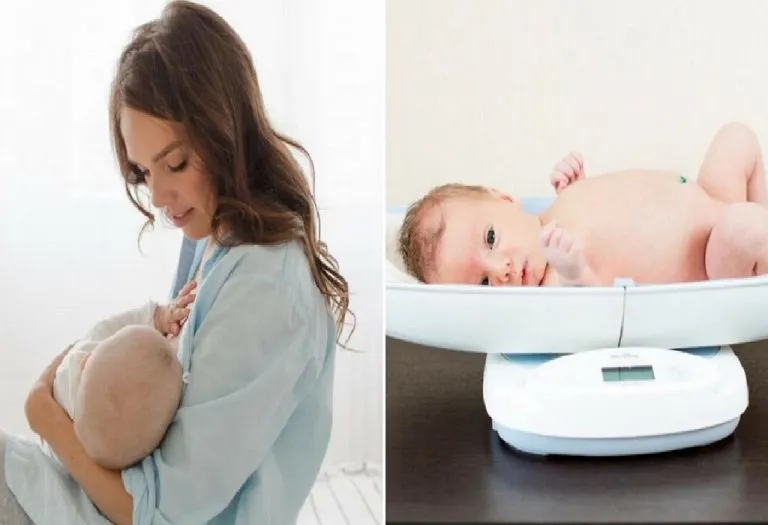
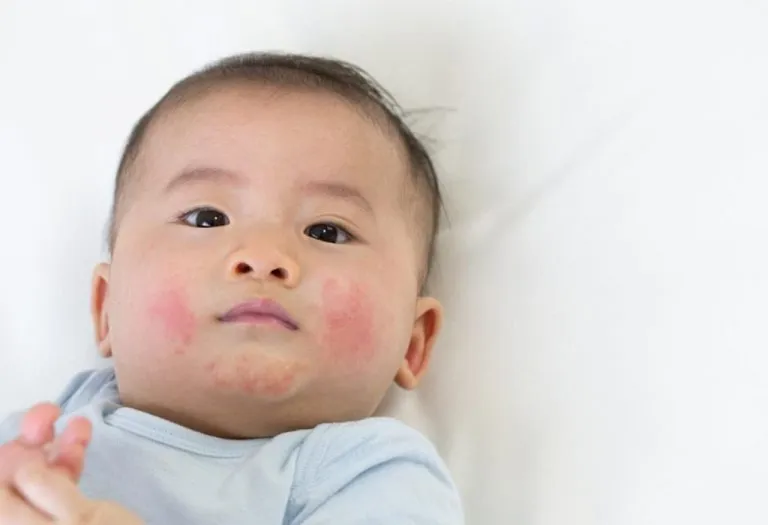

.svg)


















